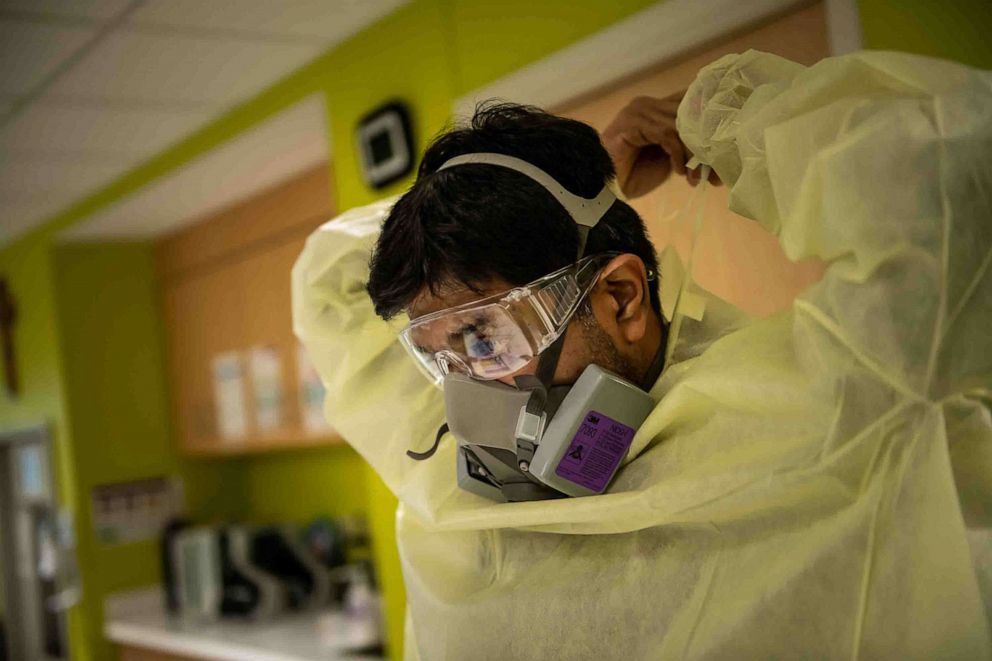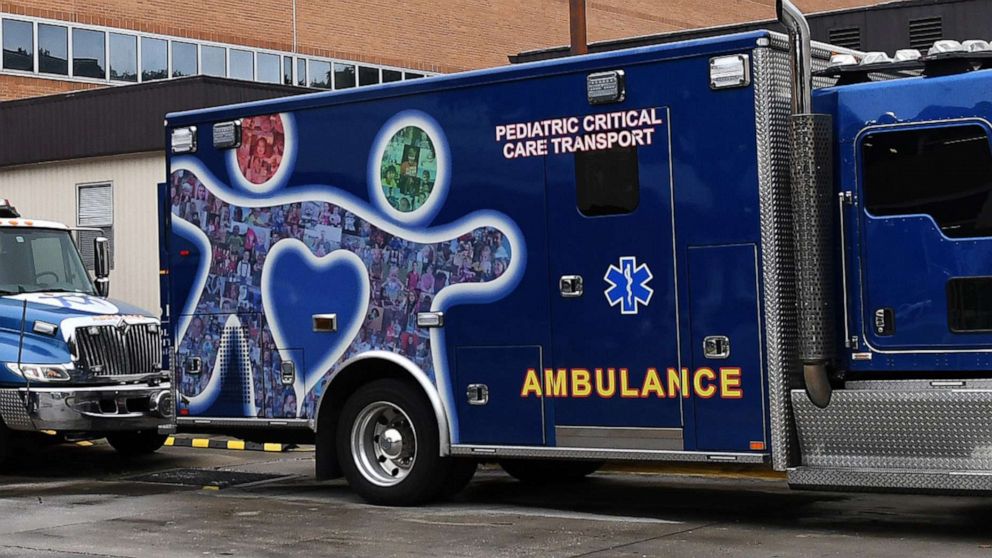More kids are getting sick from COVID. Is it delta?
Throughout much of 2020, parents took comfort in a single silver lining the pandemic: The virus seemed to spare young people, particularly children and toddlers, whose symptoms were considerably milder than the adults around them.
The precise reason for this was never quite clear. One theory was that children had fewer “receptors” that could become infected with the virus. Some wondered if kids had better immunity because of frequent exposure to other coronaviruses. Children also were less likely to be burdened by the kind of underlying health conditions plaguing older adults, according to health experts.
But the arrival of the delta variant seems to have changed that equation in just a matter of months. Health officials are warning of the steepest surge in COVID hospitalizations among children since the pandemic began, with rates 4.6 times higher than it was just five weeks ago. Those rates now put pediatric hospitalizations on par with the height of the pandemic.
But are children now at greater risk than they were last year?
Health experts said the research on the impact of delta isn't solid yet. It's possible the delta variant is so wildly transmissible that children are facing repeated exposure. It's also possible that people have grown more careless -- abandoning masks and social distancing, with much of the country itching to return to normal.
Dr. Edward Behrens, chief of the division of rheumatology at Children's Hospital of Philadelphia, said a big issue is that people wrongly assumed children were never at risk in the first place.
"It was a comforting narrative that was never true. They [children] always had the potential to be a reservoir for virus," he said.
While hospitals continue to collect the data, others say they remain alarmed by what they are seeing. According to the Centers for Disease Control and Prevention, COVID deaths among children this year were twice as high as flu deaths.
"Many of us (in pediatrics) around the country are struck by the fact that we're seeing otherwise healthy kids are getting sick and requiring oxygen, ending up in the ICU," Dr. Andrew Pavia, chief of Pediatric Infectious Diseases at the University of Utah, told ABC News.
So while the studies may be inconclusive, "our clinical impression is that (delta) may actually be worse, and that it's not just a very larger number of kids are getting infected," Pavia said.

Dr. Kenneth Paris, associate professor of pediatrics at LSU Health Sciences Center in New Orleans, had a similar experience.
"This summer we’ve seen many more kids with severe symptoms of COVID compared to what we saw last year, and then more concerning what we've seen this summer is really young children," Paris said.
In Dallas, that sudden spike meant the city ran out of intensive care beds for children last Friday.
“That means if your child’s in a car wreck, or more likely if they have COVID and need an ICU bed, we don’t have one,” Dallas County Judge Clay Jenkins said in a news conference Friday.
“Your child will wait for another child to die. Your child will just not get on the ventilator,” he added.
Dr. Cindy Bowens, medical director of the pediatric ICU at Children's Medical Center in Dallas, said they are still encouraging parents to bring their children to the hospital if they are sick.
“We will find care for every kid who comes to the hospital,” she said.
Overall, children are still considered significantly less likely than adults to experience bad outcomes from COVID-19. According to an estimate by the American Academy of Pediatrics and the Children’s Hospital Association, less than 2% of all child COVID-19 cases resulted in hospitalization.
Deaths are even more rare — almost extraordinarily so — with less than .03% of cases involving children.
Still, health experts say it’s the wrong approach to assume risk to children is minimal because it’s so much lower than the risk to older adults. That goes for teens and young adults who qualify for the vaccine, too.
"If you are young and healthy, should you be super worried that you're going to die of this disease? No," said Dr. David Dowdy, associate professor of epidemiology at the Johns Hopkins Bloomberg School of Public Health. "But if your goal is to be reasonably healthy and to avoid the potential for symptoms that could last for weeks or months, it's definitely a better idea to get the vaccine."
In other words, "just because it's not going to kill you, doesn't mean that you can't get really sick," he said.
Dowdy said he's also not convinced delta's superpowers are behind the sudden surge in kids getting sick either. He points to the widespread change in behaviors this spring when vaccinations became widely available and people dropped their masks and began gathering again in large groups whether they were vaccinated or not.
Dr. Anthony Fauci, the nation's top infectious disease expert and President Joe Biden's chief medical adviser, told ABC News anchor David Muir last week: “What is absolutely clear is that more children are getting infected. And as more children get infected, you will naturally see more children get hospitalized."
Dr. Mark Kline, physician-in-chief of Children's Hospital New Orleans, said he is alarmed at the number of critically ill children, including infants and toddlers, in his care who are struggling with COVID-19. He said children have become the "collateral damage" of adults who are refusing to wear masks or get vaccinated.
"Children currently have no way out of this pandemic other than through the advocacy and personal responsibility of their parents and all adults," he said. "So far, we are failing them miserably."
ABC News’ Arielle Mitropoulos contributed to this report.




